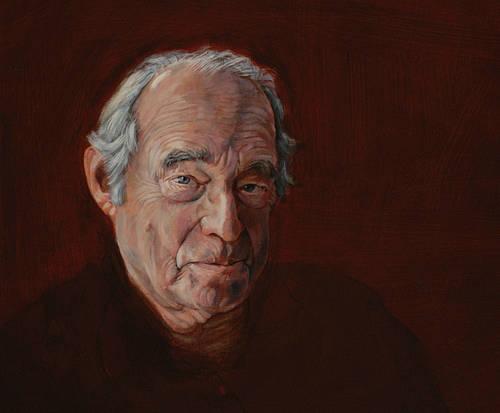"One of the 20th century's great Christian pastors and activists for peace and justice" is how World Council of Churches (WCC) general secretary Rev. Dr Samuel Kobia describes US clergyman Rev. Dr William Sloane Coffin, Jr., who died on 12 April 2006, in a tribute issued on Maundy Thursday, April 13, 2006.
The full text of Kobia tribute follows:
I write to express my sympathy at the loss of William Sloane Coffin, who will be profoundly missed by many of us throughout the world.
The Rev. Dr William Sloane Coffin, Jr., who died yesterday in the United States, was one of the 20th century's great Christian pastors and activists for peace and justice. His life reflected an understanding of ministry that he once described in these words: "Every minister is given two roles, the prophetic and the priestly." And so he sought racial reconciliation through civil rights legislation, saw himself during the cold war years as "very anti-Soviet, but very pro-Russian", conducted a "lover's quarrel" with his own country's foreign and nuclear policies, opened the eyes of students, parishioners and readers to the demands of the gospel on every aspect of life. So, too, he taught that "the greatest danger each of us faces comes not from our enemies, but from our enmity".
Dr Coffin was aware of the World Council of Churches from before its inception in 1948. His uncle Henry Sloane Coffin, then president of Union Theological Seminary in New York City, was one of the founding intellects behind the Council and a guiding influence in the establishment of its Ecumenical Institute for graduate study in Bossey, Switzerland. His theological mentors, Reinhold and H. Richard Niebuhr, led him to view God's calling in a framework that transcended national, cultural and denominational boundaries. William Sloane Coffin would continue these traditions in ecumenical circles through his years as chaplain of Yale University, pastor of Riverside Church in New York and leader of movements including the civil rights struggle, anti-war protest and the lobby for a nuclear freeze. His voice was one that we heard clearly, and heeded.
He was arrested several times in the pursuit of social righteousness. On one of these occasions, while demonstrating for the desegregation of an amusement park in Baltimore on July 4, 1963, he was one of nine US religious leaders taken into custody. Arrested in company with Coffin that day was Eugene Carson Blake, another minister of the United Presbyterian Church in the USA. Less than three years later, Gene Blake would become the second general secretary of the World Council of Churches. They remained friends and confidants to the end of Blake's life. In fact, William Sloane Coffin has been greatly admired by every one of the WCC's general secretaries.
On behalf of the ecumenical fellowship represented by the World Council of Churches, I offer thanks to God for the life, faith and courage of William Sloane Coffin. Many of us who knew him only slightly, or through his writings, or by report, join in prayer with those close friends and family members who are experiencing sorrow at his death. May the hope of the resurrection to eternal life, found at the heart of this Easter season, be with us and reassure us of God's abiding love.
Rev. Dr Samuel Kobia
General secretary, World Council of Churches
